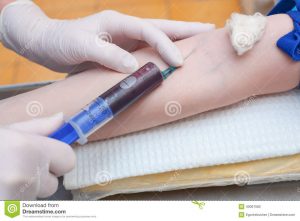Circulation Journal Report
August 06, 2018 Categories: Heart News
Study Highlights:
A new high-sensitivity blood test for heart attacks successfully diagnosed heart attacks faster and more accurately in the emergency room than the existing test.
Embargoed until 4 a.m. CT / 5 a.m. ET Monday, August 6, 2018
DALLAS, August 6, 2018 — A new test to assess a whether or not someone is having a heart attack upon arriving in the emergency room was safe and effective, ruling out heart attack in emergency room patients faster than a conventional method, according to new research in the American Heart Association’s journal Circulation.
The new high-sensitivity blood test for cardiac troponin, given in a hospital emergency room, was also found to be safe and effective. When patients present to emergency rooms with heart attack symptoms, doctors assess them in part by using a cardiac troponin test to measure a protein released into the blood when the heart is damaged.
“We did not miss any heart attacks using this test in this population,” said lead author Rebecca Vigen, M.D., M.S.C.S., a cardiologist at the University of Texas Southwestern Medical Center. “The test also allowed us to determine faster that many patients who had symptoms of a heart attack were not having a heart attack than if we had relied on the traditional test.”

Recently the United States Food and Drug Administration approved a high-sensitivity troponin test already used in Europe. The researchers developed a procedure for assessing the results of the new test and compared it to existing practice using a conventional troponin test, which takes three hours to complete. Study participants were 536 patients admitted to an emergency room with heart attack symptoms, including chest pains and shortness of breath.
The new procedure successfully “ruled out” 30 percent of patients immediately and an additional 25 percent at one hour. By three hours, the new procedure ruled out heart attack in 83.8 percent of patients compared with 80.4 percent using the conventional test.
“We anticipate that this procedure will allow many patients with chest pain to be given a ‘yes’ or ‘no’ diagnosis of whether they are having a heart attack faster,” said Vigen, who hopes clinicians from other institutions will learn from these results.
Co-authors are Patricia Kuscher, M.T., A.S.C.P.; Fernabelle Fernandez, M.L.S., A.S.C.P.; Amy Yu, M.L.S., A.S.C.P.; Bryan Bertulfo, M.L.S., A.S.C.P.; Ibrahim Hashim, M.Sc; Kyle Molberg, M.D.; Deborah Diercks, M.D., M.P.H.; Jeffery Metzger, M.D., M.B.A.; Jose Soto, M.D.; Dergham Alzubaidy, M.D.; Lorie Thibodeaux, M.H.A.; Jose Joglar, M.D.; James de Lemos, M.D.; and Sandeep Das, M.D., M.P.H. Author disclosures are on the manuscript.
The National Center for Advancing Translational Sciences of the National Institutes of Health funded the study.
Additional Resources:
Available multimedia located on the right column of the release link: https://newsroom.heart.org/news/more-sensitive-blood-test-diagnoses-heart-attacks-faster?preview=1dfa4a665c0fe12cbc4fcceb08ecc672
After August 6, view the manuscript online.
What a heart attack or stroke can feel like
Follow AHA/ASA news on Twitter @HeartNews
For updates and new science from the Circulation journal follow @CircAHA
###
Statements and conclusions of study authors published in American Heart Association scientific journals are solely those of the study authors and do not necessarily reflect the association’s policy or position. The association makes no representation or guarantee as to their accuracy or reliability. The association receives funding primarily from individuals; foundations and corporations (including pharmaceutical, device manufacturers and other companies) also make donations and fund specific association programs and events. The association has strict policies to prevent these relationships from influencing the science content. Revenues from pharmaceutical and device corporations and health insurance providers are available at www.heart.org/corporatefunding.
About the American Heart Association
The American Heart Association is devoted to saving people from heart disease and stroke – the two leading causes of death in the world. We team with millions of volunteers to fund innovative research, fight for stronger public health policies and provide lifesaving tools and information to prevent and treat these diseases. The Dallas-based association is the nation’s oldest and largest voluntary organization dedicated to fighting heart disease and stroke. To learn more or to get involved, call 1-800-AHA-USA1, visit heart.org or call any of our offices around the country. Follow us on Facebook and Twitter.
For Media Inquiries and AHA/ASA Spokesperson Perspective: 214-706-1173